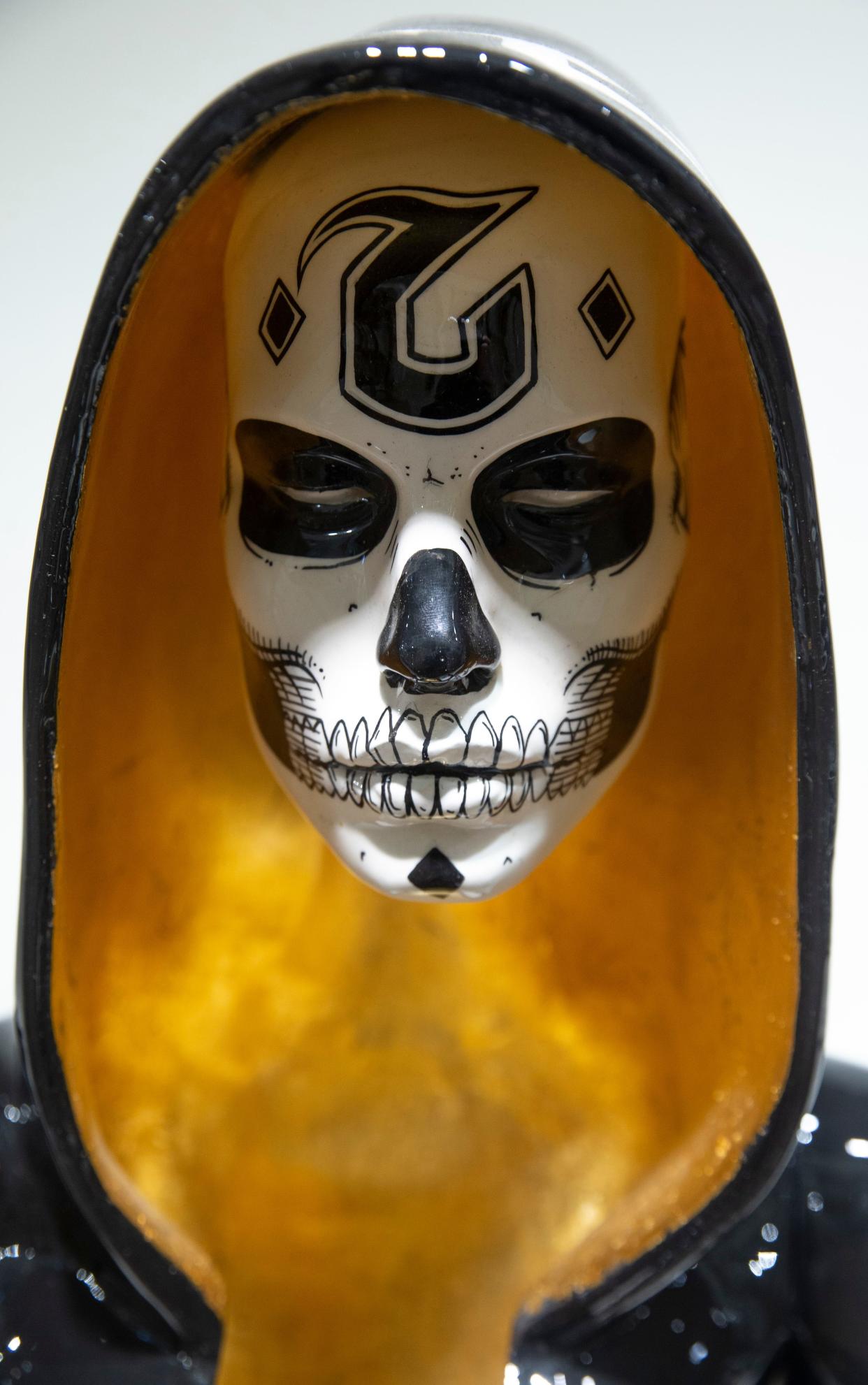Humanities college majors doomed to dead-end jobs? Prospects are better than you think
WEST LONG BRANCH - Tyler Bane, a history major at Monmouth University, has heard the loud whispers that his studies would lead home to a dead end and underemployed, but as he nears graduation this spring, he sounded unconcerned.
Bane has been talking to Monmouth County about working for the park system. He is considering getting a graduate degree in public history. But even if those ideas fall through, he is confident he can find a landing spot with his degree.
"It allows you to become a better critical thinker, to analyze data in different ways and can give you a better understanding of different situations," said Bane, a 29-year-old senior from Middletown, who is attending college after a stint in the military. "(They are) skill sets that can be applied to any field, whether that's business or banking or really anything."
Arts and sciences professors and students are pushing back against new data showing them to have higher unemployment and underemployment rates early in their careers than career-oriented majors like engineering, accounting and nursing.

Job-hunting tips: These are the 10 most overused words found on New Jersey résumés
They say the figure overlooks the number of humanities students who go on to graduate school and threatens to downplay so-called soft skills like communication, teamwork and critical thinking that employers routinely say are among the most important attributes they need in their work force.
It has prompted local counselors to remind students wanting to study liberal arts — along with parents who might be footing their tuition — that they are still marketable.
'What sets people apart?'
Thriving in the job market is "not just about the actual degree," said Jill Donovan, director of the career center at Brookdale Community College in Middletown. "It's about the skills that you need to be successful in that field. Because when you're in an interview, if everyone being interviewed has the exact same (qualifications) on paper, what sets people apart? So how can we be sure that you're going to be the clear choice?"
Bane has company. Reagan Dunn, 19, of Old Bridge, is not only majoring in history, but also minoring in art history, pursuing what has been a passion that he developed by going to museums when he was younger.
Where do you want to work? Here are the New Jersey employers ranking in Forbes' America's Best Employers 2024 list

Dunn said he came to appreciate the stories, the characters, the plots, the key events of history that have come together to influence the world today.
"I find it all fascinating and really engrossing," Dunn said of the history major. "I think it's really adaptable and can be used in a lot of different settings."
Bane and Dunn are in increasingly rare company. The number of humanities majors fell by 14% from 2012 to 2018. And the field of study accounted for just 10.2% of all bachelor's degrees awarded nationwide, its lowest share on a record that dates to 1987, according to the American Academy of Arts and Sciences, a professional society.
What recession? NJ employers discover new perks to attract workers as economy rolls on

The case for a humanities degree gets little support from jobs data. The Federal Reserve Bank of New York last week released a report looking at employment for college graduates ages 22 to 27.
Majors with the lowest unemployment rates for recent graduates
Industrial engineering: 0.2%
Construction services: 0.4%
Medical technicians: 0.4%
General social sciences: 0.6%
Nursing: 1.3%
Majors with the highest unemployment rates for recent graduates
Art history: 8.0%
Liberal arts: 7.9%
Fine arts: 7.9%
Aerospace engineering: 7.8%
History: 7.5%
Adding to the angst: Art history, liberal arts, fine arts and history all have underemployment rates of at least 50%, meaning the graduates are working in jobs that don't require a college degree, the New York Fed reported.
One-company lifer: 'Tribal knowledge' helps 50-year employee keep Wall ambulance factory going strong

Not the whole story
Observers, however, continue to advocate for those majors. The National Association of Colleges and Employers, a research group, measures what it calls positive career outcomes for students within six months of graduation: full-time job, graduate school, entrepreneurship, military, for example.
The group found graduates from the class of 2022 had considerable success across disciplines. An engineering student, for example, had an outcome rate of 89.8%, while a history student had an outcome rate of 82%, the study found.
Engineering graduates had an easier road to landing a full-time job; their average salary was 63% higher than history students, the report said.
But the association also found that employers prized skills that humanities majors ideally should have developed. For example: Nearly all employers who were surveyed responded that communication skills were important. But only 55% of employers said recent graduates showed a high level of proficiency in that category.

Good news: Why the Jersey Shore is gaining more jobs than its neighbors
"History majors are learning critical thinking skills, or they are mastering communication skills, which are all in high demand from employers across industries," said Mary Gatta, director of research and public policy.
Professors say they are trying to connect their majors to real world applications. It can be a tough sell. While nursing majors become nurses and engineering majors become engineers, the pathway from, say, an English degree to the work force can take more explaining.
Corey Dzenko, an art history professor at Monmouth University, said she gives her students a weekly assignment taking a historic work of art and describing how it connects to their lives today.

"So many people often don't understand how art and the study of it can enrich their lives in many ways and their understanding of even our society today," Dzenko said.
As Tyler Bane prepares to graduate, he said his degree in history should give him a unique perspective that he can bring to an employer, whether it is a museum or bank.
He wondered if schools had raced to quickly into science, technology, engineering and math, or STEM.
"If you were to direct everyone to take the exact same degree, that weakens everyone," Bane said. "I'm going to have a different perspective on something than someone who is a nursing major might. And you also can oversaturate. Look at tech right now. They are undergoing historic layoffs right now. So, (people saying), 'Just go get a STEM degree' is not the answer."
Michael L. Diamond is a business reporter who has been writing about the New Jersey economy and health care industry for more than 20 years. He can be reached at mdiamond@gannettnj.com.
This article originally appeared on Asbury Park Press: Humanities college majors have career prospects that rival STEM
